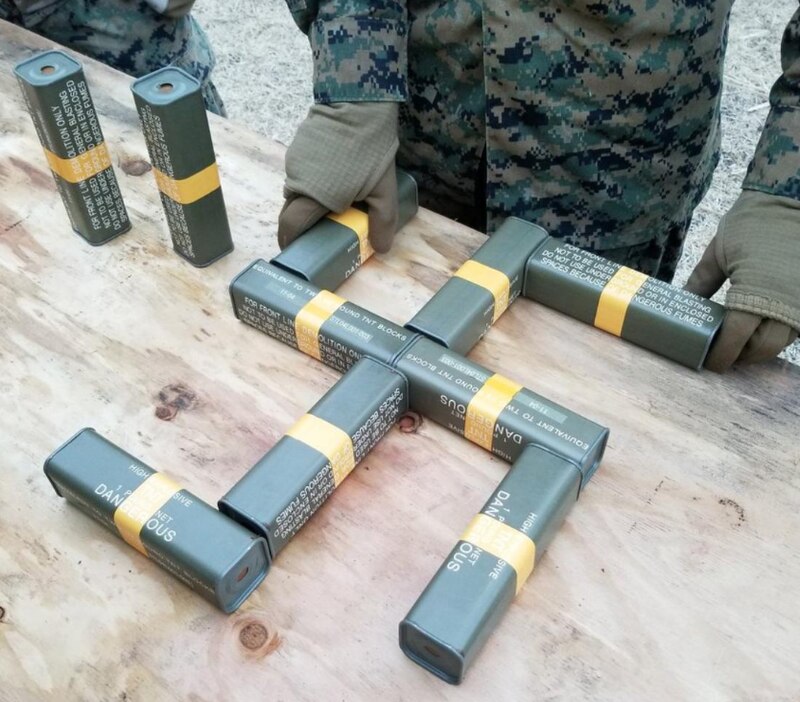On the eve of the 75th anniversary of V-E Day, this past Tuesday defense officials told a House subcommittee that belonging to a white supremacist or neo-Nazi group would not automatically get a service member kicked out of the U.S. military.
Representatives of the Naval Criminal Investigative Service and the Army’s Criminal Investigation Division “appeared to make a distinction between membership in an extremist organization and ‘active participation’ in deciding on recruitment and retention,” Military.com reports.
This “distinction” left several members of the subcommittee aghast. “I am flummoxed by what I’ve heard today,” Rep. Jackie Speier, D-California, chair of the subcommittee, said in a statement to Military.com.
Robert Grabosky, deputy director of Law Enforcement at the Air Force Office of Special Investigations, told the subcommittee that it “is not prohibited” for service members to belong to a white nationalist group so long as there is no “active participation” within the organization.
It is unclear how the military would categorize “active participation” as, across all branches of the military, there is a zero-tolerance policy when it comes to actively participating in hate groups.
Military recruiters are “armed with few tools from records checks to interviews to keep supremacists out of the ranks” making it a difficult task to weed out those with ties to hate groups, the Marine Corps Times writes.
The problem has plagued the military in recent years.
In 2008, the FBI sounded the alarm for this frightening rise, noting with high confidence that “Military experience is found throughout the white supremacist extremist movement as the result of recruitment campaigns by extremist groups and self-recruitment by veterans sympathetic to white supremacist causes. Extremist leaders seek to recruit members with military experience in order to exploit their discipline, knowledge of firearms, explosives, and tactical skills and access to weapons and intelligence.”
Further FBI warnings singled out the strong potential for white supremacist recruitment of military personnel–“the military training veterans bring to the movement and their potential to pass this training on to others can increase the ability of lone offenders to carry out violence from the movement’s fringes.”
The Marine Corps alone has seen a spike in incidences involving white supremacist groups.
One Marine, Lance Cpl. Vasillios G. Pistolis, was kicked out of the Corps after a 2018 ProPublica investigation linked him to the Atomwaffen Division, a neo-Nazi group that some deem a terror organization.
Coast Guard Lt. Christopher Hasson, a former Marine and outspoken white nationalist, was arrested on February 15, 2019 for drug and firearm charges, but investigators had feared he was planning an attack on several political and media targets, the Marine Corps Times reports.
While Rep. Trent Kelly, R-Mississippi, ranking member of the subcommittee, cautions that “we don’t have a lot of reliable data” on extremist ideology that is permeating the military, membership to white supremacist and neo-Nazi organizations across the civilian population continue to rise. Within the last four years, the number of U.S. hate groups have risen by 30%, the Southern Poverty Law Center, a civil rights organization that tracks hate groups, reports.
As social media becomes awash with anti-Semitic rhetoric and Nazi propaganda, the question for the military becomes, according to Kelly, “what can we do better to keep ’em out and what can we do to get ’em out?”

